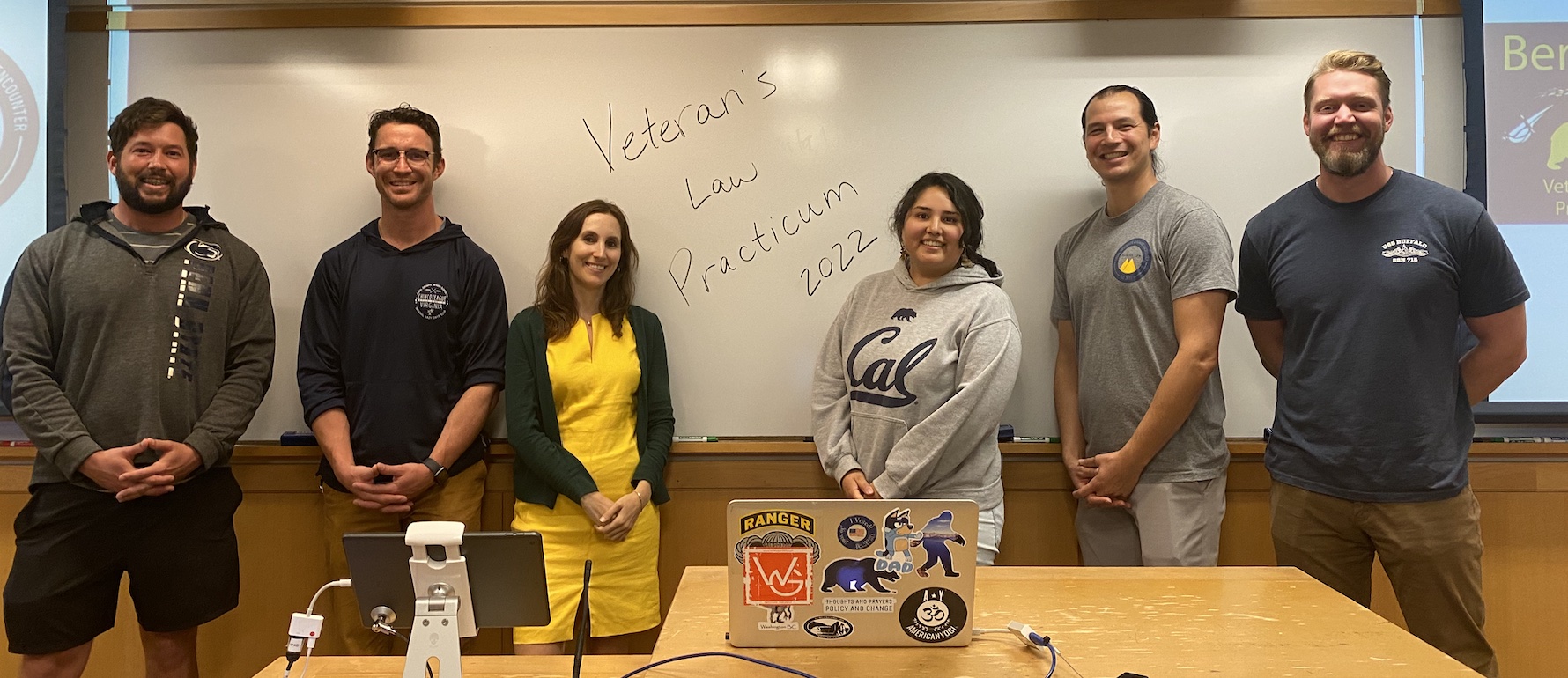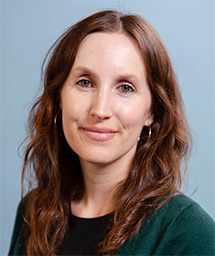
By Gwyneth K. Shaw
Since 2009, students in Berkeley Law’s Veterans Law Practicum have spent scores of pro bono hours helping former service members solve a wide range of problems.
Now, they’re tackling a new issue: The deportation of veterans after criminal convictions, often stemming from mental health conditions related to their military service. The number of former service members sent to Mexico is believed to be in the hundreds, with many others now in Jamaica, various countries in Africa, and elsewhere across the globe.
Students are working with an alliance of legal aid organizations, immigration law experts, a former judge, and affected veterans, under the supervision of Lecturer Rose Carmen Goldberg, who teaches the practicum.
“That literally thousands of veterans have been deported after serving their country is an under-recognized and long unaddressed injustice,” Goldberg says. “First, they face incarceration. And then, they face the second punishment of exile. These veterans deserve mental health care and support — not banishment and separation from their families.”
A point of focus so far has been a deep dive into the humanitarian parole program run by the U.S. Department of Homeland Security, which is an avenue for deported people, including veterans, to return to the U.S. temporarily for urgent needs like health care. The students are crafting recommendations for how humanitarian parole should be restructured to be more accessible to deported veterans and in a more timely manner, which is especially critical in light of many of these requests being based on time-sensitive health issues.
The students are also pushing for policy reforms to ensure deported veterans have access to the lifesaving U.S. Department of Veterans Affairs (VA) health care and disability benefits to which they remain entitled by law — but which are largely out of reach overseas, sometimes with dire consequences. This includes building recommendations for improvements to the VA’s Foreign Medical Program, which is supposed to provide limited health care to overseas veterans, including those who’ve been deported, but often fails, especially in the mental health realm.

Soon, students will begin interviewing deported veterans from around the globe, to ground their policy recommendations in veterans’ lived experiences. They’ll also turn to an examination of the conditions veterans are subjected to while in jail and immigration detention.
“While there is growing awareness and advocacy on behalf of deported veterans, this complex crisis — which sits at the intersection of veterans law, immigration law, and criminal law — calls urgently for reform in how we treat immigrant veterans,” says Goldberg, noting that deported veterans with inadequate access to health care have died overseas after being denied reentry to the U.S.
“The brilliant Berkeley Law Veterans Law Practicum students, with their deep grounding in veterans law and education in its complicated intersection with immigration law and criminal law, are in a unique position to tackle an angle of this crisis that has received insufficient attention,” she says.
Pushing boundaries
Joe St. Clair ’23, who served in the U.S. Air Force for just under a decade, including four deployments to Afghanistan as an airborne translator, witnessed firsthand the way service members are taught to prioritize operations over their physical and mental health. When he went to file for his own disability claims and benefits, “fighting with the VA and familiarizing myself with the rules was a full-time job for me the first year I was out.”
He joined the practicum to help educate his fellow veterans and encourage them to take steps to get help.
“You could look at a deported veteran and say this is a person who has broken the law and is a criminal and has no right to be here,” he says. “Or instead, you could say this is someone who sacrificed everything and then was punished for trying to simply survive the aftereffects of the trauma the military put them through. Just like other vulnerable veterans, many of these deported veterans saw intense combat and then didn’t receive the support they should have.
“Drug use, resistance to authority, and many of the behaviors that result in their arrests and deportations are all symptoms of their military service. Rather than recognizing this, they are vilified and tossed away.”
For Eric Wright ’24, the growing divide between civilians and the military was a big reason why it was important to him that programs like the practicum thrive at a public institution like Berkeley Law. Research from the Pew Research Center shows that fewer young people have connections with the military or veterans. That has an impact on the quality and depth of policy debates, Wright says.
He hopes the practicum and other veteran-centered programs at UC Berkeley, including the law student-led Legal Obstacles Veterans Encounter (LOVE) group he co-leads, can help to bridge the gap. The group was founded in 2021 by a trio of veterans and is also advised by Goldberg.
Wright, who served two tours in Afghanistan during his tenure in the U.S. Army, says the work with the practicum has had a profound impact on his law school experience.
“If something is illegal, immoral, or unethical, you should stop the conduct and right the wrong. The practicum gives us real-world experience working within the bureaucracy to right these wrongs,” he says. “Professor Goldberg has so much experience using a variety of legal and public relations tools to influence agency action. She’s very precise when employing those tools to create change.”
He particularly enjoys his personal interactions with fellow veterans, where active listening is often his most valuable contribution.
“Our common lived experiences, even if generations apart, really help to start the conversation from a position of trust,” Wright says. “When a veteran entrusts you with a memory or a feeling that they’ve never shared with anyone in their lives, it’s such a powerful moment.”
St. Clair says his work with the practicum echoes what he thinks many veterans have observed over the past few decades: That support for veterans is far less robust than active service members are led to believe.
“The military subculture is specifically and insidiously designed to put the blame on those who are victims of the system and paint them as either broken if they don’t get treatment or as opportunists if they do, rather than the leaders who are making these decisions,” he says.
While the system can be frustrating, St. Clair says, it’s always rewarding to give someone new hope for life — and the practicum gives him opportunities to do it.
“Whether that is an LGBT veteran wrongfully discharged under ‘don’t ask, don’t tell,’ a veteran who served in Vietnam and is now completely indigent, or a deported veteran being told that they are not an American, what these individuals receive is more than simple monetary compensation or health care,” he says. “They have lived for decades with the shame of being told there was something wrong with them and that they are inherently flawed despite the fact that they have made more sacrifices for our society than nearly anyone else.
“The acknowledgment of what they have been through cannot be measured materially. It completely changes the narrative of their lives and gives them the peace they never thought was possible.”